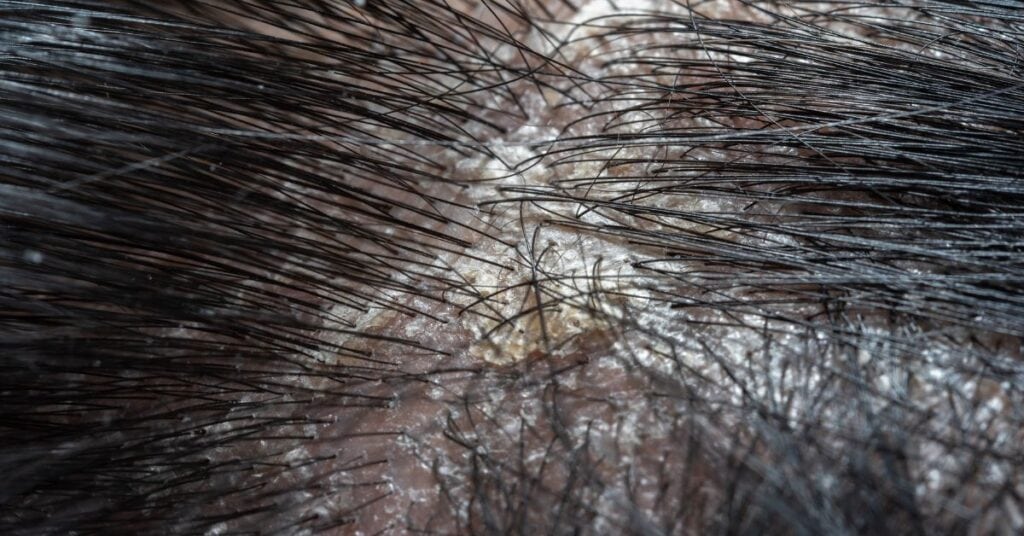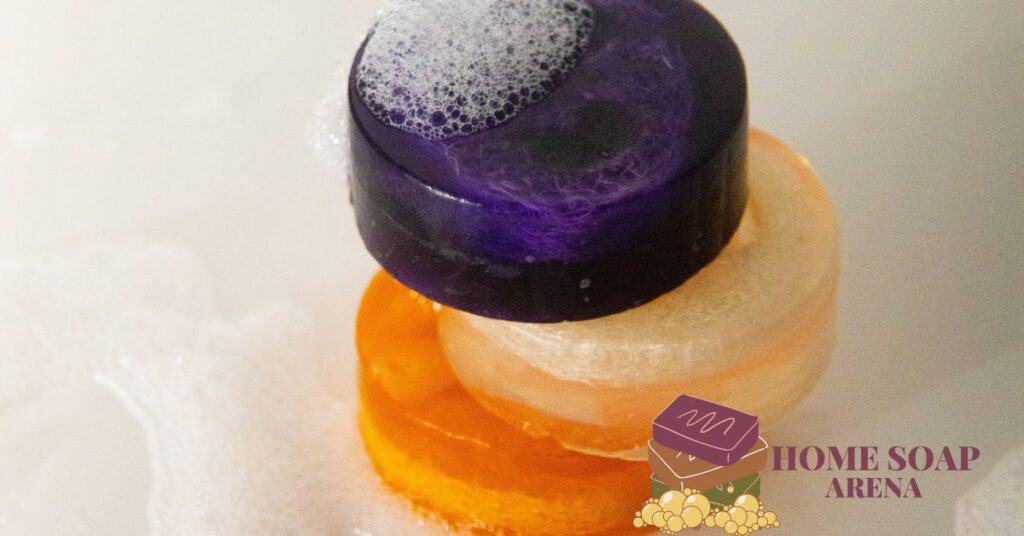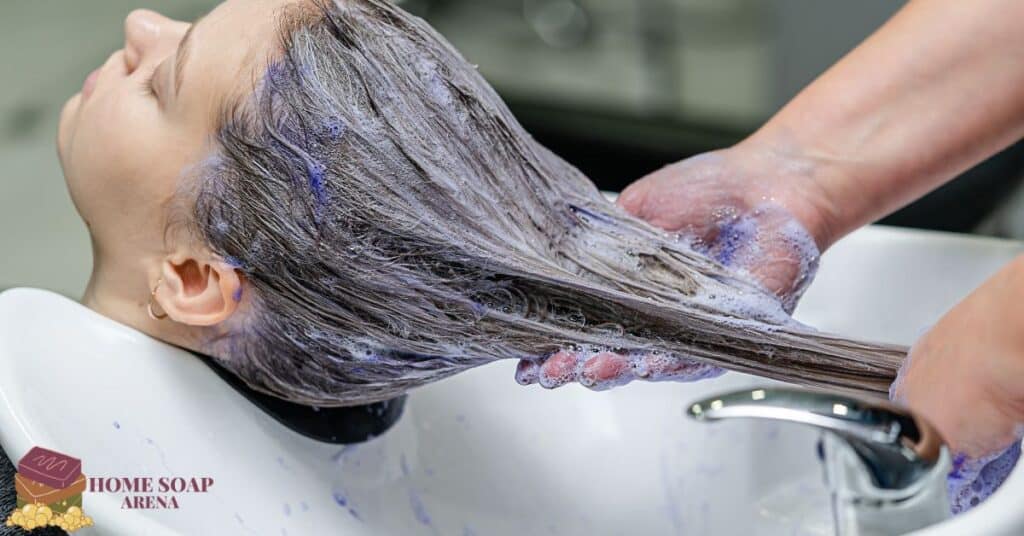Table of Contents
- Why Is Hair Washing Important For Scalp Psoriasis?
- Should I Wash My Hair Every Day If I Have Scalp Psoriasis?
- How To Wash Your Hair With Scalp Psoriasis?
- What Are The Dos And Don’ts Of Scalp Psoriasis?
- Is It Better To Have Short Hair With Scalp Psoriasis?
- How Long Does It Take For Scalp Psoriasis To Clear Up?
- Conclusion
How often should you wash hair scalp psoriasis? As often as your scalp can tolerate.
Scalp psoriasis is a chronic autoimmune condition that causes thick, scaly, red patches on the scalp and surrounding skin.
It can be itchy, painful, and affect one’s self-esteem.
I’ve seen people with scalp psoriasis, and one of the common questions they ask is how often they should wash their hair.
Finding the right balance between maintaining a clean and healthy scalp and not exacerbating psoriasis symptoms is crucial.
In this blog post, I’ll provide you with some tips on how to care for your scalp psoriasis.
Let’s Start!
Why Is Hair Washing Important For Scalp Psoriasis?
Symptoms of scalp psoriasis are very common and occur in up to 80% of people who have the disease.
Hair washing is important for scalp psoriasis for several reasons.
First, it helps to remove the excess dead skin cells, oil, and dirt that accumulate on the scalp, causing irritation and infection.
Additionally, it helps to hydrate and moisturize the scalp, which prevents dryness and cracking.
Third, it helps to deliver the active ingredients of medicated shampoos or other treatments to the affected areas and enhances their effectiveness.
Should I Wash My Hair Every Day If I Have Scalp Psoriasis?
There is no definitive answer to how often you should wash your hair with scalp psoriasis.
However, most scalp psoriasis shampoos are safe for everyday use.
But daily use may irritate your skin and make it more sensitive to sunlight, increasing your risk of sunburn.
If your scalp is getting irritated, reduce your use of these shampoos to 2 days a week.
Dermatologist-prescribed shampoos are best when it comes to treating scalp psoriasis. These shampoos are also available at over-the-counter.
Most of the time, these shampoos are used in conjunction with other medications and serve to relieve itching and reduce scalp flaking caused by psoriasis.
Furthermore, shampoos based on vitamin D, coal tar, salicylic acid, zinc pyrithione, ketoconazole, or neem oil in a shampoo form are recommended to subdue psoriasis.
Is it OK to remove scalp psoriasis? No!
When washing your hair with these shampoos, you must not force the psoriasis scabs to come out, as this can cause bleeding and infections.
It is recommended to apply the shampoo and wait a few minutes for the product to act, and then rinse with warm water to help soften the scabs.
Then, you can comb your hair with a soft-bristled brush.
How To Wash Your Hair With Scalp Psoriasis?
Incorporate a cool tar shampoo into your routine. Cool tar is anti-inflammatory and anti-proliferative.
Part of why you get that flaky, scaly stuff with psoriasis is because it’s a hyperproliferative skin disorder. The cool tar helps put the brakes on that to normalize things.
However, it does smell unpleasant, as a word of warning, and it can stain the shower and tub.
The way you use it is similar to the salicylic acid shampoo: just lather it on the scalp, leave it on while in the shower for 10 minutes, and then rinse it out.
You don’t necessarily have to use it every day, but you can incorporate it once a week. It helps thin out those plaques and calm the inflammation.
It can help with yeast if you use it consistently. Using an anti-dandruff shampoo with zinc pyrithione or selenium sulfide helps psoriasis.
They are anti-inflammatory, similar to cool tar, and they reduce the burden of that little yeast called Malassezia that lives on everyone’s skin.
Malassezia is part of normal human skin flora.
You do want to eradicate it, but for people with psoriasis or dandruff, their immune system sometimes gets annoyed with the Malassezia, especially if it is too abundant.
These ingredients help reduce that yeast amount and, therefore, have that anti-inflammatory effect, which is beneficial to psoriasis in the long term.
When you wash your hair with scalp psoriasis, you should follow these steps:
- Wet your hair and scalp with lukewarm water. Avoid hot water, as it can dry out and irritate your scalp.
- Apply a small amount of shampoo to your scalp and gently massage it in.
- Do not rub or scratch your scalp; it worsens your symptoms and causes bleeding or infection.
What you need to understand about psoriasis is that anything that causes trauma or injury to the scalp will elicit more psoriasis.
- Leave the shampoo on your scalp for the recommended time, usually a few minutes. This will allow the shampoo to work on your scalp and loosen the scales.
- Then lean back and rinse your hair and scalp thoroughly with lukewarm water. Make sure to remove all the shampoo residue to avoid buildup and irritation.
- Gently pat your hair and scalp dry using a soft towel instead of rubbing or tugging, which can cause damage.
- Apply a therapeutic conditioner to your hair tip. This will help to moisturize and protect your hair.
What Are The Dos And Don’ts Of Scalp Psoriasis?
There are topical medications that can control the disease.
As well as oral medications, we can also inject anti-inflammatory medicine into the scalp to calm down psoriasis or use an eczema laser to calm it down. Says Dr Dray
For those of you whose scalp can’t tolerate daily shampooing, I hear you.
Use a moisturizer or coconut oil on your scalp or affected areas several times a day, especially after washing your hair or showering.
Coconut oil helps soften, hydrate, soothe your scalp, and break off some of the scales, and it also contains anti-inflammatory compounds.
This will help to hydrate and soothe your scalp and prevent dryness and cracking. Another benefit of coconut oil is it can reduce hydro-fatigue and hair frizz.
However, there is a caveat: Some experience acne breakouts when they use coconut oil, so be mindful of that, especially if you have acne-prone skin.
Another alternative is mineral oil. The way to use a mineral oil is to massage it into the scalp, put on a shower cap, let it sit for 20 minutes, and rinse it out.
You’re dealing with an internal autoimmune condition that is basically representing itself on the outside.
So, you must deal with it internally as well, rather than just trying to treat the symptom externally. So take vitamin D3.
Vitamin D3 is clinically proven to, over time, make sure that once it is at that optimal level, reduce your chance of actually having scalp psoriasis.
Anytime you are applying anything to the scalp, be gentle; apply it in a circular motion with your fingertips. Don’t pick, scratch, or dry brush your scalp.
If your scalp is itchy, you can use a cold compress, an anti-itch cream, or an oral antihistamine to relieve the itchiness.
The hairdryer is not prohibited but must be used without excess: not too hot, not too long, not too close to the scalp.
Avoid tight hairstyles, such as braids, ponytails, or buns, as they can pull on your scalp and cause irritation or damage.
Opt for loose or natural hairstyles, and use gentle hair accessories, such as clips, bands, or pins.
Avoid harsh chemicals, such as hair dyes, bleaches, perms, or relaxers, as they damage your hair and scalp and trigger a flare-up of scalp psoriasis.
If you want to color or style your hair, consult with your doctor or dermatologist first, and use products that are mild and safe for your scalp.
Avoid exposure to extreme temperatures, such as cold, heat, or sun, as they can dry out and irritate your scalp. Don’t wear a head scarf except when necessary.
Furthermore, some people may experience bouts of anxiety and depression that worsen psoriasis symptoms.
In these cases, it is recommended to consult a psychologist or psychiatrist, as anxiolytic medications can help control psoriasis.
Some natural products, such as aloe-based ointments, can also help treat scalp psoriasis, which reduces redness and flaking.
Manage your stress, as it can worsen your scalp psoriasis and trigger a flare-up. Find healthy ways to cope with stress, such as meditation, yoga, exercise, or hobbies.
Eat a balanced diet rich in fruits, vegetables, whole grains, lean proteins, and healthy fats.
Avoid foods that cause inflammation, such as processed, fried, or spicy foods, alcohol, or caffeine.
See your doctor or dermatologist regularly, and follow their advice on how to treat your scalp psoriasis.
Is It Better To Have Short Hair With Scalp Psoriasis?
Having short hair can be highly beneficial for individuals with scalp psoriasis, as it allows for better penetration and absorption of topical treatments, leading to more effective healing.
Short hair is easier to care for, as it’s easier to keep the affected area clean and free of flakes, reducing the chance of a flare-up and making it easier to manage the condition.
How Long Does It Take For Scalp Psoriasis To Clear Up?
Scalp psoriasis is a chronic condition that causes raised, discolored plaques on your scalp and other areas around your scalp.
It can be mild, moderate, or severe, and it may cause itching, flaking, hair loss, and discomfort.
The treatment of scalp psoriasis depends on the severity of your symptoms, your response to previous medications, and your personal preferences.
There is no cure for psoriasis, but you can manage it with various topical, oral, or injectable medications, as well as light therapy.
The duration of scalp psoriasis treatment varies from person to person.
Some people may see improvement in a few weeks, while others may need months or longer to achieve clear or almost clear skin.
The goal of treatment is to reduce inflammation, slow down skin cell growth, and remove scales.
Conclusion
Scalp psoriasis is a common and challenging condition that affects your hair and scalp health, as well as your quality of life.
However, by washing your hair properly and regularly and practicing the above-listed healthy practices, you can improve your condition and feel more comfortable and confident.
Remember, the internal autoimmune condition should be dealt with internally, and thus, you’ll have a better long-term outcome rather than just trying to treat it topically.
If you have any questions or concerns, do not hesitate to contact your doctor or dermatologist.



